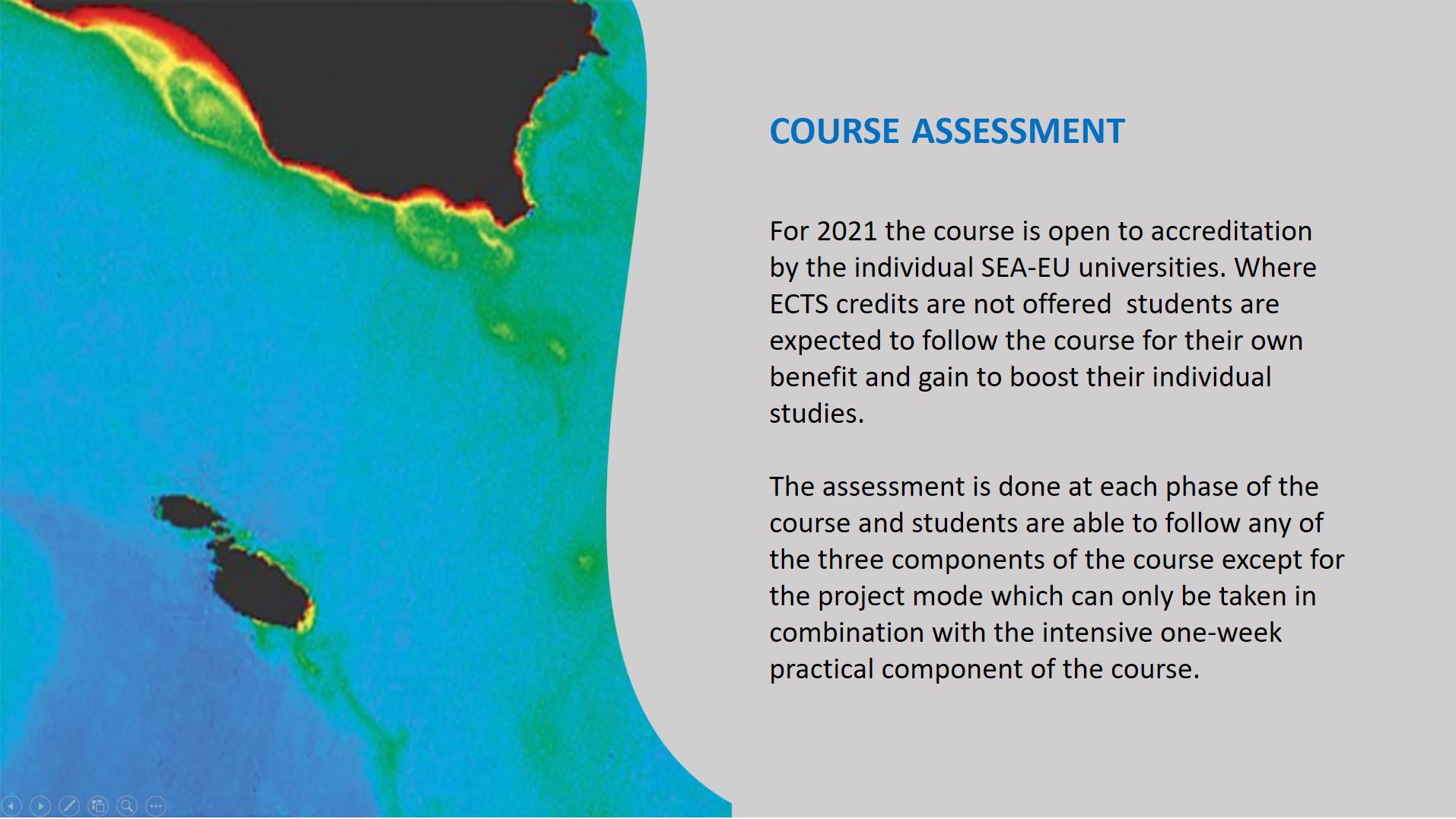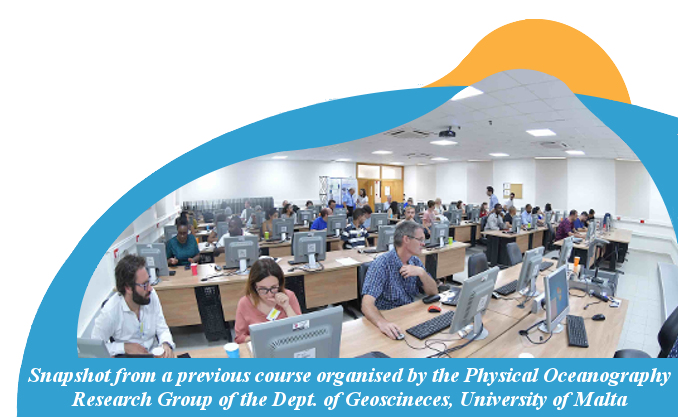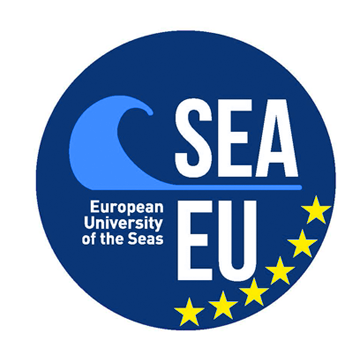
Short Course on Marine Data Literacy
An intensive preparatory course on marine data offered by the European University of the SeasSTARTING 18th OCTOBER 2021
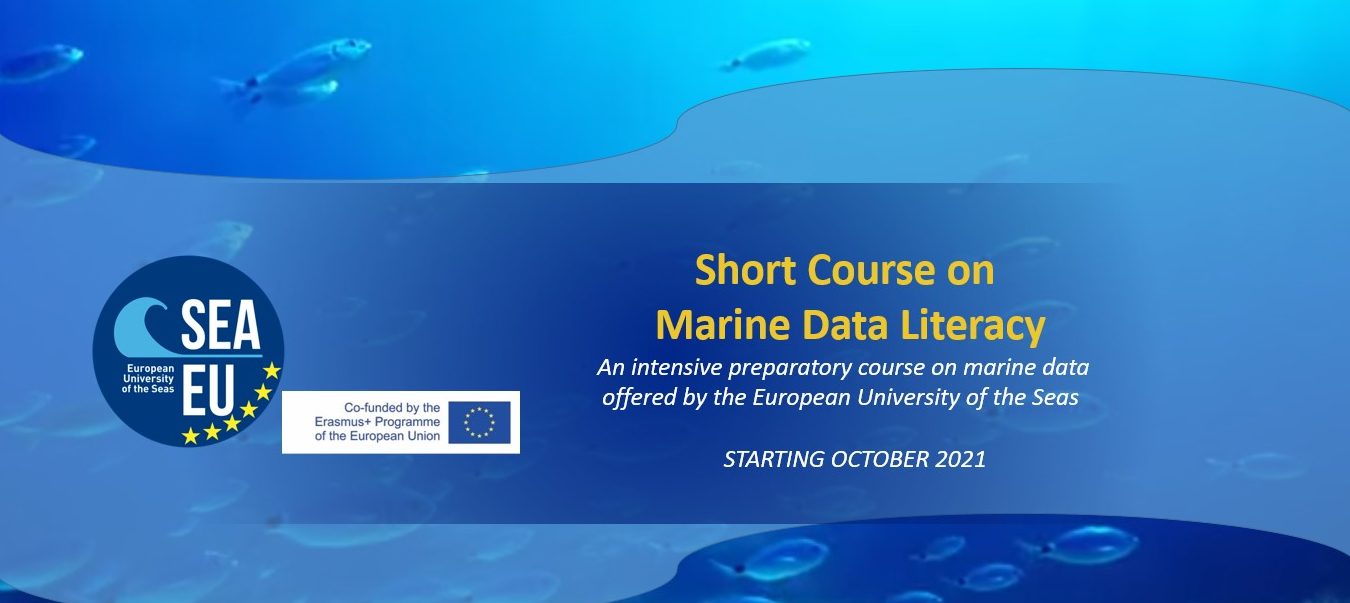

COURSE INTRO
The course provides the background on the value of data and its transformation into information and knowledge in the context of the digital age which spearheads the evolution of marine services to serve stakeholder demands and boost research and innovation applications, such as within the ambit of Blue Growth and Mission Ocean– the European Commission’s initiatives to further harness the potential of Europe’s oceans, seas and coasts, for sustainable development, jobs and value. The importance of data is interpreted as the essential ingredient for the monitoring, management and sustainable use of resources such as in the context of marine spatial planning, informed decision-making, strategy planning and in policy formulations. Sustainable development in a knowledge-based society goes in parallel with the process of extracting essence from data, together with value addition by a wide range of downstream services that are fitting to the user needs, especially in the local scale application scenarios.
The course tackles the full range of data types covering the different data acquisition and generation platforms (e.g. observations and models), and including the merging of data of diverse nature (e.g. socio-economic and ecological) including non-scientific and qualitative data (eg resource tracking and mapping, demography, performance statistics, etc).
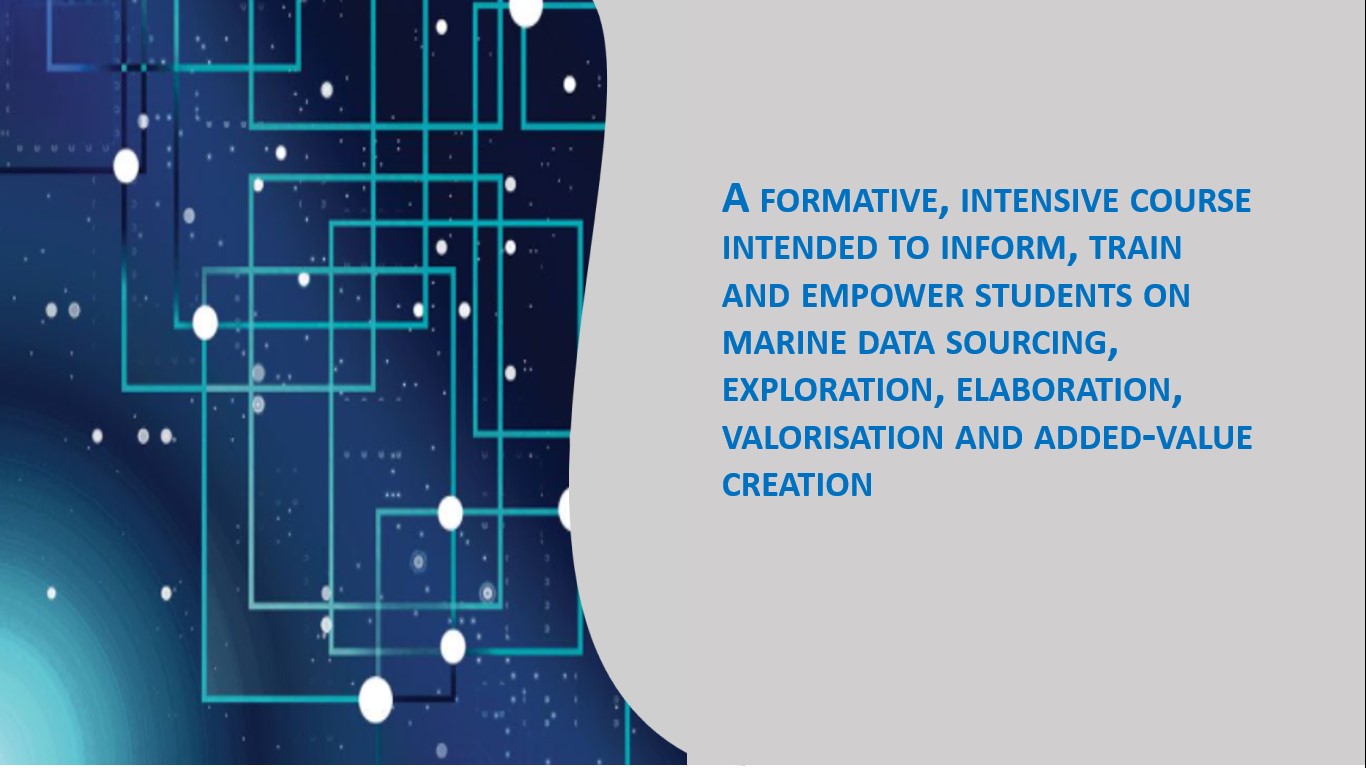
Data management, quality control, archival and publishing over different production and dissemination platforms is a further important component in the course. This introduces students to international standards on data keeping, exchange and interoperability, highlighting the INSPIRE and FAIR criteria, to the concept of open data, and to the organisation of data to be shared widely through dedicated national, regional and European frameworks and services.
The course adopts a practical and hands-on approach throughout so that concepts and methods are delivered through examples and real applications. In its ideal format it is delivered in a computer lab environment (merging physical and virtual settings) offering the participants an individualised learning experience through practice. Dedicated sessions in the programme link to the CMEMS and EMODnet portals, and to other specialised data platforms (such as for ARGO floats and earth observations). Furthermore specialized tools for data extraction and sub-setting, data visualisation, and data analysis provide the essential skills needed to use and interpret data appropriately and unambiguously.
TRAINING OBJECTIVES
The objectives of the course follow two main overarching aspects:
- Students are introduced to the concepts underlying the integrated, multi-disciplinary assessment and sustainable management of the coastal and marine domains defining the seaward extent of the coast and its biological and socio-economic importance. They are introduced to overarching concepts of sustainable development, the blue economy, and the need for science to meet the needs of society. The approach caters for the regional seas, European and International efforts in aspects such as for (i) assessing and monitoring marine ecosystem health, (ii) sustaining fisheries resources, and many other aspects in applied oceanography. The intention is to stress the link between science and management, and on how policy undertakings and decision making can be supported by science. The importance of data in a knowledge-based society is presented from the perspective of diverse applications (such as in artificial intelligence) that render data an asset for innovation, smart products and services, and economic benefits in the marine/maritime industry.
- The course provides students with the necessary practical skills that will allow them to visualize, process and analyse scientific data using professional software packages. Students are introduced to different types and formats of met-ocean data and will be trained in hands-on sessions to use such data to identify, understand, and quantify marine ecosystem processes and forcings, identify their temporal and spatial evolutions, and extract knowledge for assessments and management. The students will be also engaged in learning how to draw conclusions and prove theories on the basis of scientific data. These practical skills constitute a basic element of the course and will prove useful for the further studies in which the students will engage at post-graduate level. Students are introduced to various software packages that are typically used for oceanographic and scientific data processing and analysis. The course deals with the basic usage of these software packages in dedicated practical sessions.
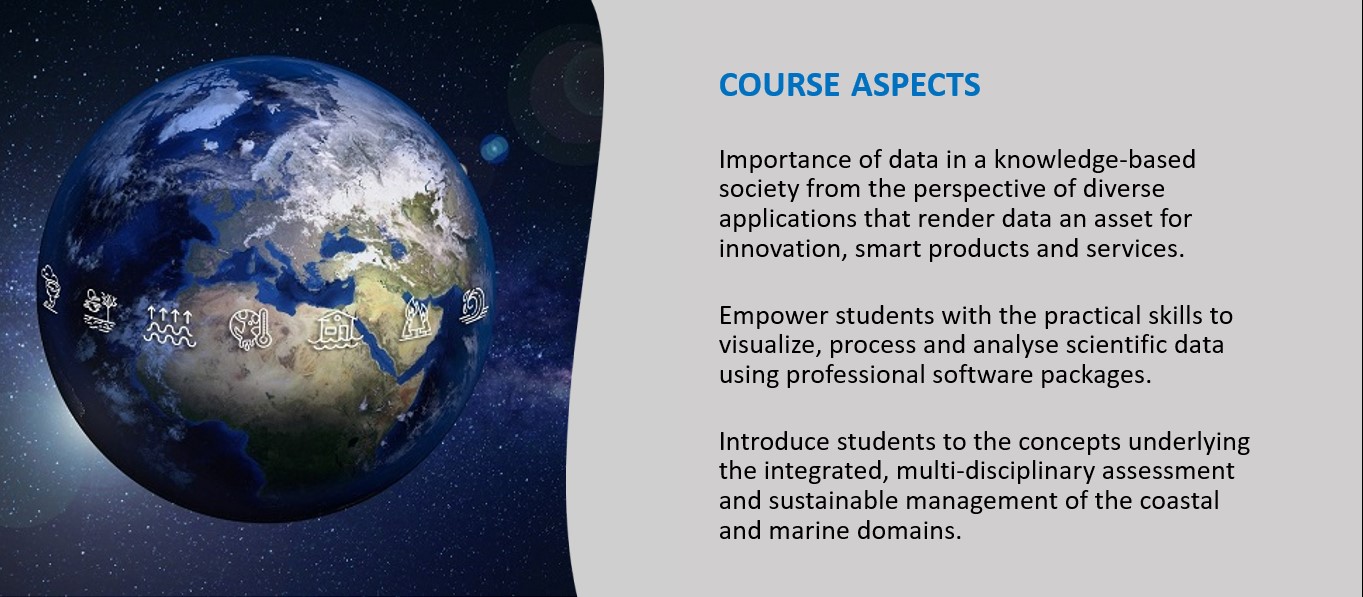
In summary the training objectives are to:
- Acquire skills to source, use and manage data proficiently
- Learn about best practices on data exchange and FAIR principles including the organization, formats, documentation, storage and security of data following metadata standards
- Learn about the legal principles of data sharing
- Learn about reliable data sources through a practical approach on the use of existing databases/services (especially CMEMS and EMODnet) and on how they can be accessed and used
- Practise the efficient use of data in applied research and data-based assessments such as through visual analysis and professional data analysis toolboxes.
LEARNING OUTCOMES & SKILLS
- Identify different types and formats of available scientific data;
- Understand the basics of data processing and extraction of knowledge from data;
- Understand the basics of coastal resource management: mainly ICZM utilising an ecosystem-based approach;
- Use timely delivery of routine, reliable, quality-assured marine data assists in meeting expected standards of environmental monitoring, assessments and management in support of sustainable development;
- Understand how relevant data may be acquired to fit the needs of users such as in fisheries resource assessment and management, water quality monitoring and the general state of health of the sea;
- Give appropriate importance of data to prove theoretical concepts and/or draw scientific conclusions.
- Apply the scientific method in the design of studies and assessments, in establishing feasible sampling and surveying protocols, in the sound interpretation of data, and in deriving meaningful conclusions;
- Handle several data sources (models, in-situ instruments and remote sensing); different types of data (time series, gridded data, etc.); data formats (ascii vs binary formats);
- Convert between different data types;
- Gain practice in data processing and analysis through the use of various software packages;
- To source and use available scientific resources – using climatologies, catalogues and databases;
- Adopt data processing methodologies to prove scientific theories and/or draw conclusions on the basis of a dataset;
- Process and analyse scientific data using software typically used in oceanographic (and other types of scientific) research;
- Understand the data needs of environmental managers to perform coastal zone management using an ecosystem-based approach.
TARGETED STUDENTS
In its first run, the course is limited to a maximum of ten students from each of the SEA-EU universities, for a total of 60. Students from universities outside the SEA-EU alliance may be considered. The limit of 60 students does not apply to the introductory phase of the course consisting of the initial background lectures which will be open to a wider audience. The course Board of Studies will select the participants according to merit based on qualifications and a number of set criteria taking into account the background of the applicants and the nature of their postgraduate studies.
Students joining the course do not need any initial programming skills, but are expected to have acquired the necessary backgrounds from their first degree courses.
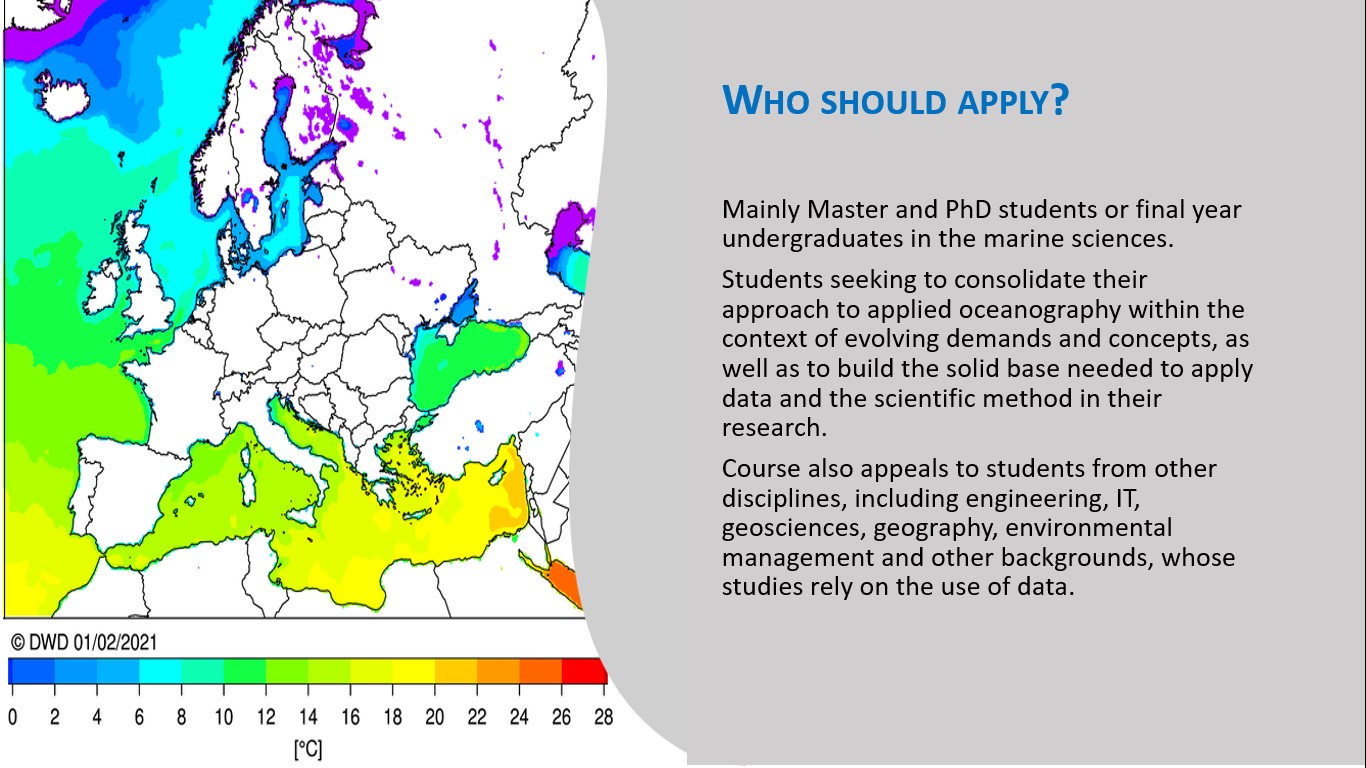
COURSE IMPLEMENTATION
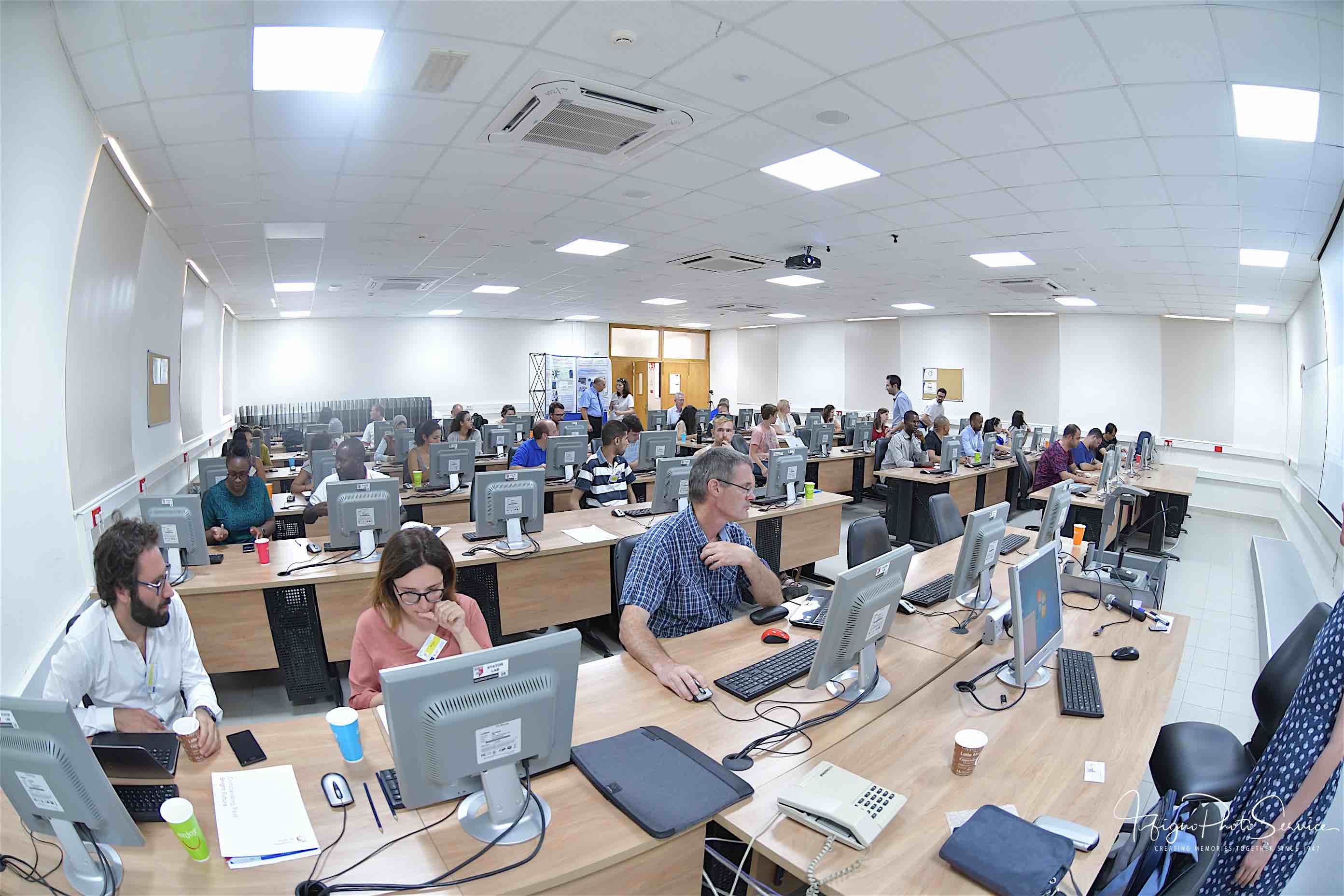
The Course Faculty is composed of the contributing academics delivering lectures or practicals in the course programme. It is not mandatory to have teachers from the six universities, neither students from the six universities. The course is open to all and will be offered every year.
The delivery of the course is expected to apply a blended approach where students would be normally offered options with a mix of online and physical delivery. The course is planned in three linked but distinct components, for a total of 109 hours spread over a period of three months, typically October/November/December each year. The core of the course is an intensive one week physical meeting (25.5h) with theoretical lectures and principally dedicated to practical sessions. The intensive one-week component can be optionally followed remotely so as to offer a wider participation of students. This is preceded by an introductory phase (13.5h) consisting of online lectures spread over two or three weeks. The final component of the course (70h) is dedicated to the course project in which the course students are given individual and group work to accomplish remotely with mentoring by assigned lecturers and following both scheduled and ad hoc assignments/projects. This component is expected to run over a period of eight weeks.
The execution of the course is done jointly by the partner universities together. The hosting and organisation of the intensive week is done on a roster basis, with the host/lead university rotating every year between the participating universities.
For 2021, a fully online delivery is being planned and the intensive part of the course will be spread over four weeks instead. Once the COVID-19 restrictions are over, the course can follow the structured components as outlined above.
PERIOD OF DELIVERY
Again for this first exceptional year the course will spread over a longer period with the project mode being delivered in the second semester of the academic year, that is over the period March/ April 2021.
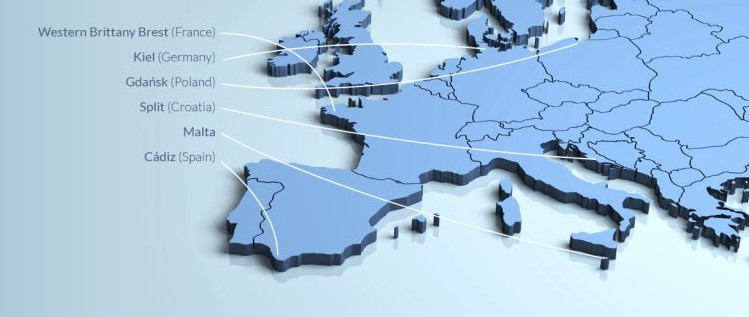
COURSE PROGRAMME
First part: lectures (13.5h); second part: intensive course (25.5h); third part: project mode (70h)
Introduction mode (13.5h - setting the data concepts and foundations) (remote lectures)
- Marine data / introduction (different data types, importance of data ; why need of data literacy)
- Types of data: physical, biogeochemical, ecological models; observations (in situ + remote); Big Data; Artificial Intelligence
-
Data sharing and FAIR principles
Open Science and Open Research Data; FAIR principles; Data archaeology -
Best practices for working with data (data organization and management,
documentation, and storage and data security) (metadata standards)
Data Management; metadata; interoperability ; SeaDataNet; IOC/IODE -
Combining data from multiple sources (interoperability and
interdisciplinarity)
Distributed databases; THREDDS; cloud resources and services -
Reliable oceanographic data sources (overview of oceanographic databases)
Data Mining; CMEMS and EMODnet
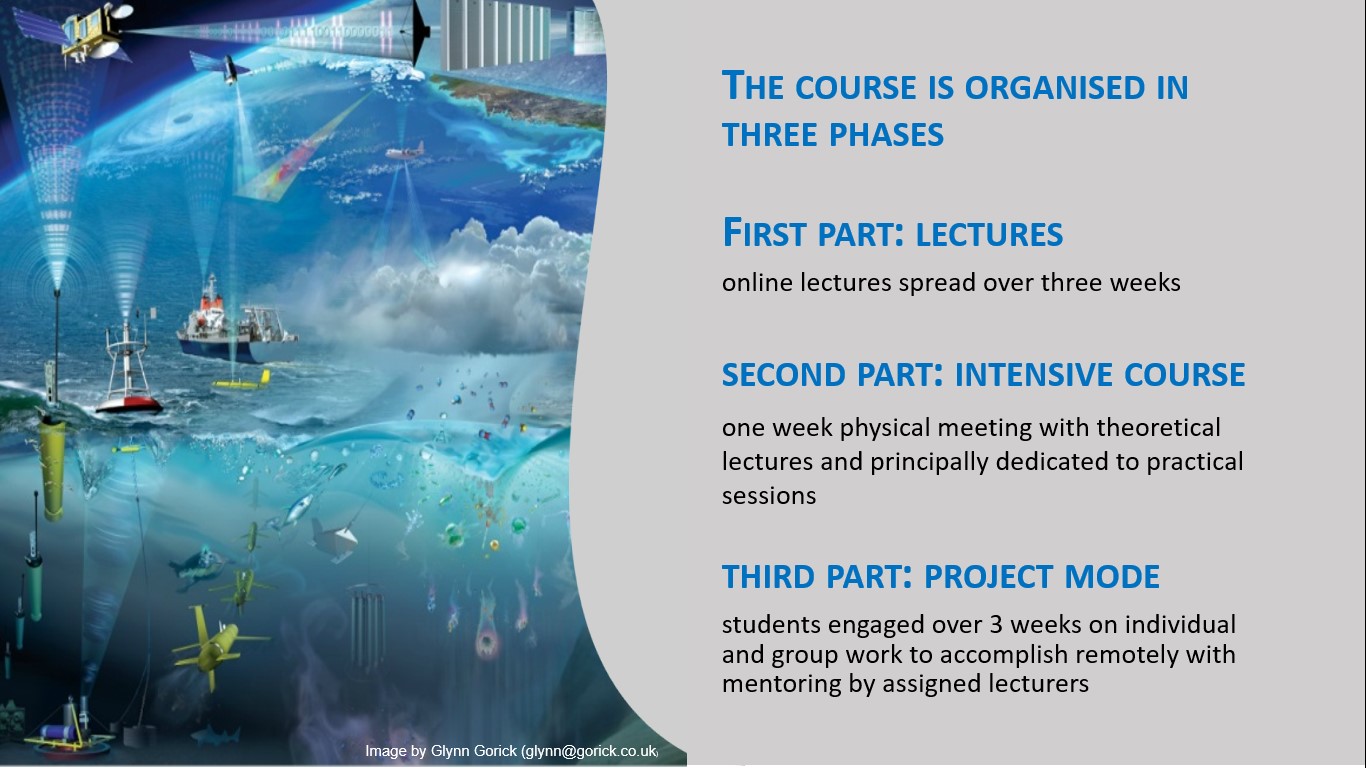
Intensive mode (25.5h - 1 week module with physical meeting)
The emphasis on the course delivery during this week is on practical sessions, giving to students a hands-on application and acquisition of skills through problem solving of set practical activities through the search and use of real data.
Major content concerns the acquisition of technical skills for:
- Data retrieval and visualisation
- Data analysis
For students following remotely, the delivery will be done through a virtual toolkit which can be used on personal laptops.
Part of this week is dedicated to kick start the students on the course project. Methodology will be given during this week to let students have the time to think on it and start on the job.
For the academic year 2021/22, this will be conducted complete by remote sessions to all the participants, and organised in eight sessions spread over four weeks.
Project mode (70h - module to be continued remotely)
The project mode is intended to take the form of a practical assignment where the emphasis is on the learning experience and the students have the opportunity to show their skill to put into practice some of the knowledge and know-how that they will have gained during the preceding components of the course.
Assignments for the project mode consist of sea-related challenges which students will be expected to address by proposing, planning and developing a prototype solution to tackle, resolve or understand better a given problem or situation. The nature of the exercise will focus on the use and merging of data to provide a solution or assessment to resolve the challenge. Students are expected to engineer solutions to a specific pre-defined problem that requires data to be transformed into useable information. A set of challenges will be proposed to the students, and each challenge will be supported by a group of at least two mentors; the mentors for each challenge should ideally be coming from different universities. A challenge can be taken by more than one team or student.
The choice of a challenge and assignment of students or team members to each challenge will be done during the intensive week when the students will come to know each other, and during which special sessions will be held to introduce the project mode to the participating students. The students will be offered a number of challenges prepared by the course organisors, but it is also possible for students to propose their own challenges and projects provided that assigned mentors deem the proposals to be fitting to the course and feasible in their scope and implementation.
The tackling of challenges by teams is encouraged, favouring a mix of students from different universities, and with different academic backgrounds (eg. science + management + legal aspects) to nourish a multi-disciplinary approach.
The performance of the students in the course is assessed through all the three course components which can be taken individually, except for the project mode which can only be taken in combination with the intensive one-week practical component of the course. The project mode carries the greater weighting on the project mode. Students can opt to take either (i) an individual project or (ii) a team project. The team project is expected to carry a more elaborated delivery in which each student will need to have a specific and unique well identified delivery. The individual project might be most appropriate for those students who could only follow the course, especially the intensive part, in remote mode.
The assessment of the projects will be done in two steps carrying equal weighting. The first assessment is done by the mentors on the basis of a report prepared by the students, and using common agreed criteria for evaluation. The second part of the assessment is done through a short online presentation and assessed by an expert panel composed of members from the course BoS. In the case of challenges tackled by a team of students, each student will have a separate and distinct role/aspect to tackle in the challenge, and will be expected to report and present on that aspect.
COURSE ASSESSMENT
Typically two, three and five ECTS will be accredited to the intro, practical and project modes respectively.The assessment of the students will be done at each phase of the course so that accreditation can be assigned on the individual course components as well as on the whole course. Credits will be mainly assigned through the project mode which will be shaped to enable individual student contributions; these contributions will serve to assess the student’s performance in the course according to established assessment criteria. In the case of a team effort, each student member of a team will need to submit an individual report and take part directly in the final presentation of the selected project.
